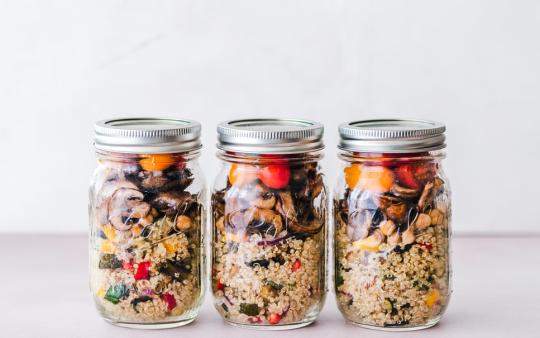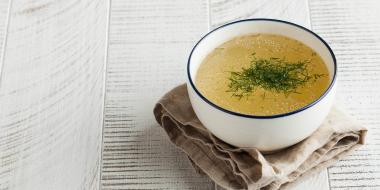It is that time of the year again when families across Canada shop for new school supplies for their children. Back-to-school shopping can be overwhelming, but don’t forget to equip your kids with toxic-free lunch boxes and water bottles. Healthy lunches and snacks are about more than just veggies and whole grains – avoiding nasty chemicals in the packaging is also key for your kid’s health.
Let’s take a step back. Many school supplies – think scented markers – can contain toxic chemicals that have been linked to allergies or respiratory problems (long-term exposure to some chemicals has even been linked to increased risk of cancer and reproductive problems). Especially harmful are hormone-disrupting chemicals that can be present in many products containing plastic. But they are most concerning in reusable lunch containers and water bottles. Why? Because these hormone-disrupting chemicals can leach into the food and liquids that end up in your children’s bodies.
The recipe for a healthy school lunch
Lunchbox sets and containers are often made out of plastic. Common chemical ingredients used in reusable plastic containers are bisphenols like bisphenol-A (commonly known as BPA) that are added to make the plastic tough and clear. BPA and its similarly unsafe substitutes bisphenol-F (BPF) and bisphenol-S (BPS) can leach out of the plastic containers and contaminate the food stored within, especially if the food is hot or when the container is heated (that’s why it’s recommended not to microwave plastic containers).
BPA is a known hormone-disrupting chemical and has been linked to increased risk of cancer, infertility, early puberty in females, type-2 diabetes, obesity and asthma. It has been declared toxic and banned from baby bottles in Canada back in 2010, but it can still be used in other products like plastic containers and food cans. There is limited but growing evidence that common substitutes BPF and BPS, that are very similar to BPA in their chemical structure, also act as hormone-disruptors. That’s why lightweight stainless steel is your best option.
Avoiding plastic lunch and snack containers that may contain bisphenols is important, but you should also make sure that the food you pack for your children is equally bisphenol-free. BPA is currently used in the lining of many food cans like tuna and luncheon meat cans. In the spring of 2016, we tested food cans purchased from Canada’s largest food retailers and found BPA in 18 of 21 tested cans. This is troubling as studies have shown that BPA from can linings ends up contaminating the contained food. Fortunately, some companies have started to phase out BPA in food cans.
Reusable plastic water bottles can also be a source of bisphenols. Over the past few years many companies have stopped using BPA in bottles after pressure from the public to remove the toxic chemical. That’s why you have likely seen the label “BPA-free” on most bottles on sale today. But sadly, many plastic bottle manufacturer now use BPF or BPS, which should also be avoided.
Tips for Safe Back to School Shopping
There are many safe products that you can find relatively easily. Here are a few tips that will help with your peace of mind as you pack your child’s lunch every day:
- Purchase and pack food in reusable containers made from lightweight stainless steel or glass, and reuse metal spoon and forks from home. Alternatively, use plastic containers that do not contain BPA, BPF or BPS, but do not reheat in the microwave.
- Look for stainless steel reusable water bottles that are not lined with BPA or other bisphenols. They come in many different colours and sizes, and are relatively inexpensive.
- Buy food cans that are not lined with BPA (like Amy’s Kitchen, Eden Foods or Raincoast), or opt for foods packaged in glass jars.
- Use the Environmental Defence BPA and Food Pocket Guide and Toxic Ten Pocket Guide when shopping for groceries or other household items.
- Research before buy! A growing number of brands and companies are phasing out toxic chemicals. A little research before going to the store can help you find the right product.
- Take a look at shopping guides for toxics-free back to school supplies like this handy EWG tip sheet.
*Originally published August 27, 2016






